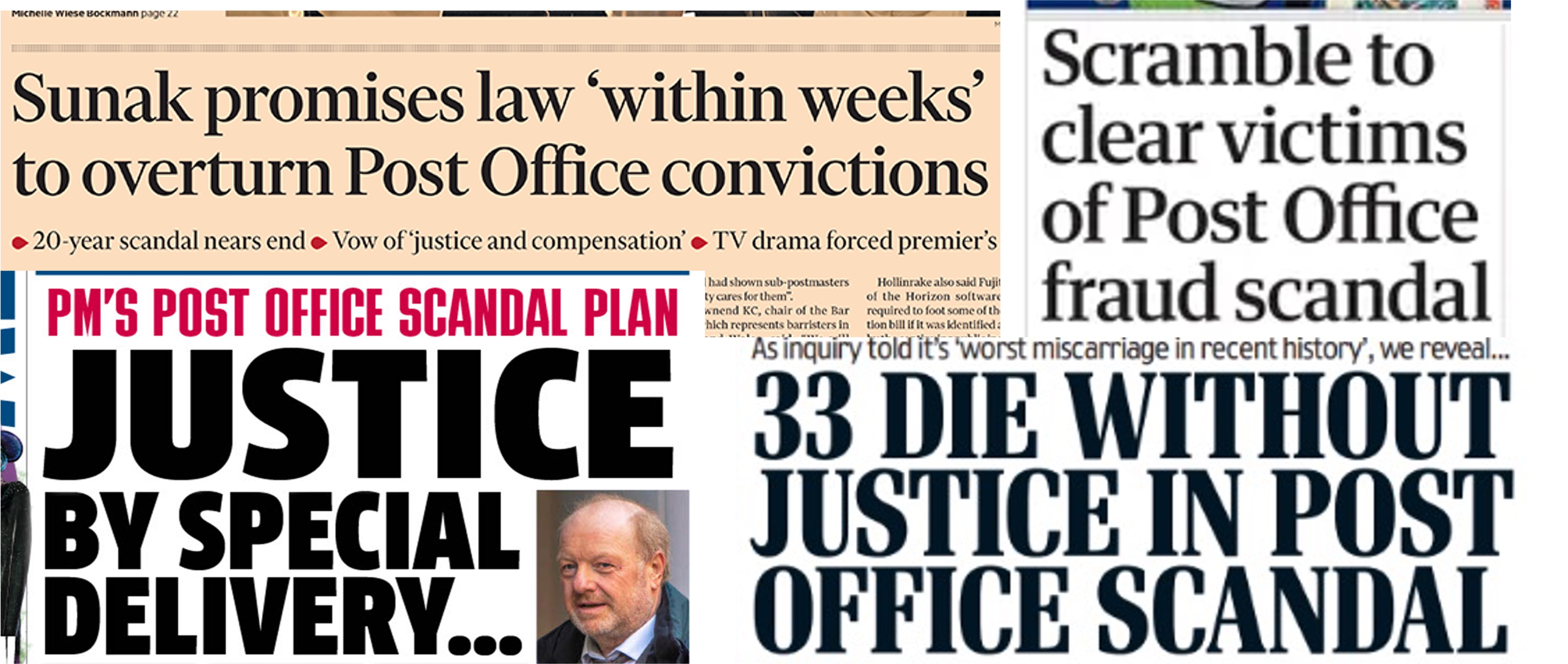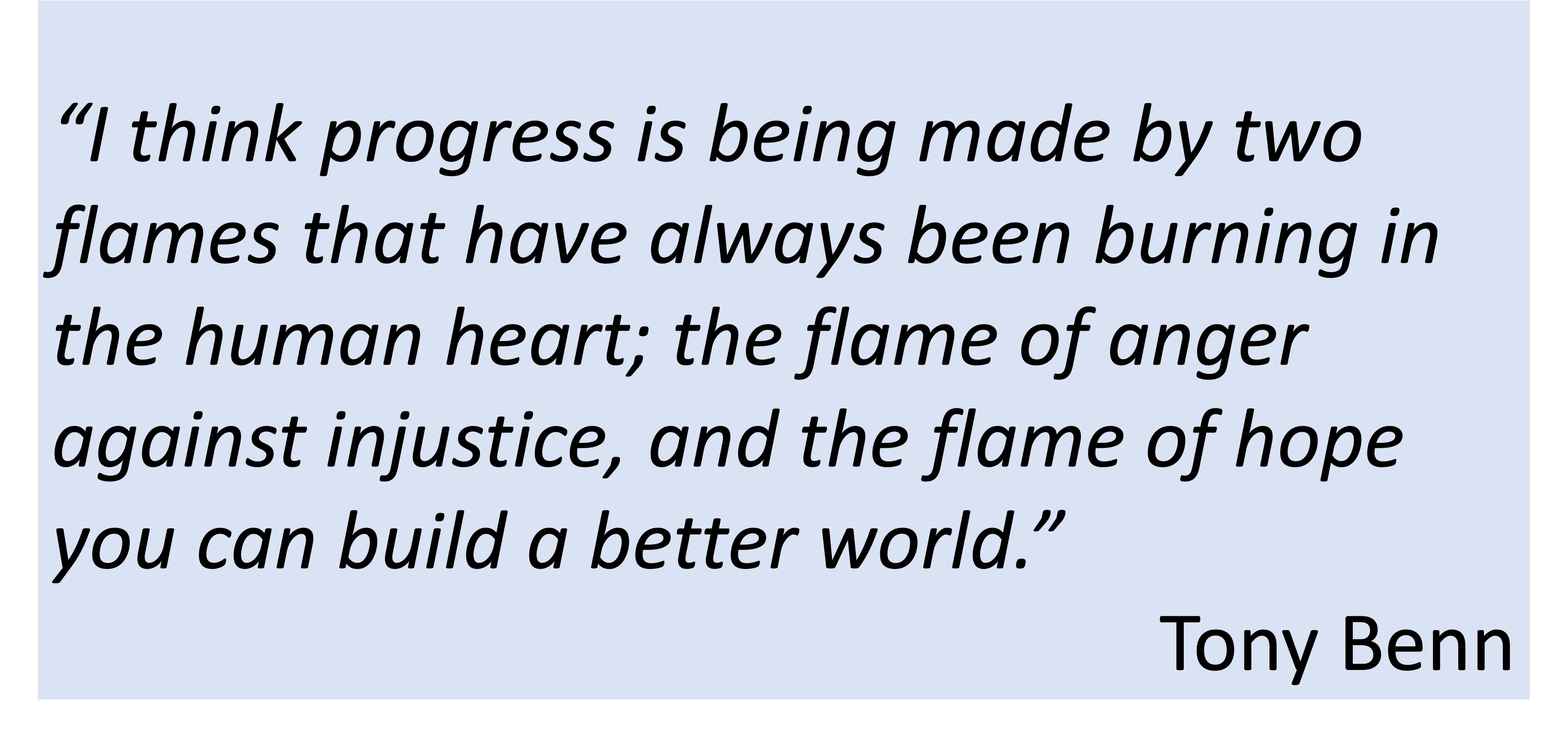This is Blog No 56
The aftermath of the Mr Bates v Post Office television drama will be mulled over by political scientists for years! Without doubt, it tells us so much about the power of the State, the tin-ears of officialdom, the impact of mass media and the terrifying ‘herd instinct’ when the public will is stirred.

It also raises some difficult issues about processes like public consultation. Here are three things we all need to consider carefully.
1. When needed, the British state can move with lightning speed. But ….
The post office scandal is not the only example. Witness how quickly Parliament passed laws restricting our civil liberties when the pandemic lockdown was first introduced. Note how rapidly we have banned certain dog breeds. How legislation deemed urgent by Ministers can gallop through Parliament with little or no scrutiny. It often ends badly.
Far better, of course is a slower, more deliberate procedure, with checks and balances, some of which involve one form or another of stakeholder dialogue, or even public consultation.
No-one suggests the Government should consult openly as it now legislates to exonerate those who have been wrongly convicted. Yet, consultation there will be. Ministers are already in deep discussion with leading Judges, and, naturally they should talk to the innocent victims and those that represent them. Now, with a harsh media spotlight, conversations that used to be held behind closed doors, are now likely to be reported – and we all know roughly who says what to whom.
When lockdown was introduced, the Secretary of State for Education made extensive and far-reaching changes to regulations affecting adoption, and officials organised a rapid set of discussions with various stakeholders. They omitted, however, to talk to the Children’s Commissioner, and when this eventually went to the High Court (the Article 39 case), the Government lost the case. Urgency did not, it seems, enable Ministers to avoid consultation with key stakeholders.

In the panic that grips the Government on this issue, right now, it must not neglect the requirement to consult – albeit informally. The public's anger is no excuse.
2. The potency of Television drama – for good … or bad!
Every experienced Comms executive knows the power of ‘storytelling’ and public policy has often been influenced at the margins stretching back to the iconic Cathy Come Home play in 1966, which stimulated actions on homelessness. Sadly, the most prominent examples are after-the-event dramatisations – helping us understand what went wrong, and maybe helping future policy-making. We think of reconstructions of Hillsborough, Windrush or the recent drama about Jimmy Saville. Mr Bates is also in that genre – and, once again, exposes the failure of the State to respond adequately.
Campaigners, will, however have taken note. Within hours of the Parliamentary statement, a prominent political podcaster/pundit said he was sure that a producer was already on board to make a drama based on the plight of flat-dwellers caught in the building-cladding fiascos. Ditto for a dozen other injustices that our political system seems incapable of addressing. So anyone who wants to influence public opinion, and maybe the course of a consultation – will already be writing their scripts, delving into the best human interest angle and talking to casting directors.
But beware. Trial by Television is a double-edged sword. We all agree with the cause of the Post office victims. But the power of such television does not apply just to ‘good causes’. What happens – and what misinformation can spread if the medium is used to stoke sectarian hatred or to promote less-universal values? There is far too much scope for manipulating public opinion and we haven’t yet started thinking about the dangers of AI.
3. What’s missing? A more consultative culture.
Very few come out well from the Post Office scandal. Obviously not the Post Office, nor the civil servants that supervised it. Nor Ministers who showed little appetite for questioning advice they were given. Neither do Parliamentarians who – with a few exceptions – failed to respond to constituents’ cries for help. And certainly not the Judiciary and the legal profession which failed the innocent. And so on.
The underlying cause is probably the British obsession with secrecy and the absence of transparency. Senior people cocooned in their own bunkers. So isolated that no-one in the upper echelons of the civil service had an instinct to pause for thought before rewarding the retiring Post Office CEO with her CBE. That a well-known scandal had been raging around her Company for over a decade hadn’t even registered. An IT Company, that I was once proud to have worked for (1980-95) that was too scared to confide in its client that it had some problems with its delivered solution. Similarly, that Judges and barristers (who regularly dine at Inns of Courts precisely to keep in touch with each other) did not notice that they were sending so many people to prison on the basis of unchallenged technical assertions of a piece of software’s vulnerabilities.
Consultation stands for Transparency. It’s a cultural thing. It’s not about collective decision-making – for those in authority retain the power to decide. It’s about equipping them to take better-informed decisions, by opening up their thought-processes. Every time a proper consultation is run – what should be happening is that an organisation is, in effect saying. "These are the issues we are facing. These are some of the ideas we are considering. These are (what we think are) the impacts. What do YOU think?" Clearly no-one in the Post Office had the remotest interest in what anyone else thought. They KNEW they were right!
Finally a personal perspective.
Around 1990, when I was in ICL (before it became Fujitsu), I was, for a time, Manager of Worldwide Customer Satisfaction. It was my job to ensure we were adequately measuring client and user reactions to our products. We were good at it; we used excellent survey and dialogue techniques; we spent much money on what was a brilliant way to pick up problems and issues that might otherwise not become evident as quickly. It was a consultative culture – customer consultation. It was this expertise that enabled me to establish the Consultation Institute some years later.
I left ICL/Fujitsu in 1995. And I have some important questions.
- When did the Company stop being curious about what system users thought of its products?
- How could such a Company roll out a major solution such as HORIZON, and stop measuring its customer satisfaction?
- To what extent did it know – or care - that end users experienced the problems that have now come to light?
- Did it not retain and analyse its Helpdesk data? Did it supress information about the system’s vulnerabilities?
- Did it not sit down with its client – the Post Office, to consider what was happening, and to help address the issues.
What the public Inquiry is revealing is that Post Office – and Fujitsu were engaged upon a dance of denial. It’s wrong, and for all in the public and private sectors we need instead a clamour for candour and a culture of consultation!
Leave a Comment
I hope you enjoyed this post. If you would like to, please leave a comment below.